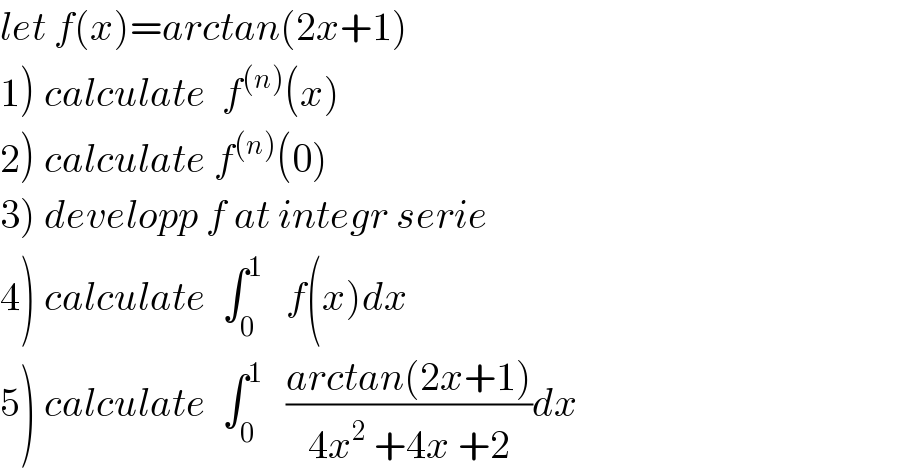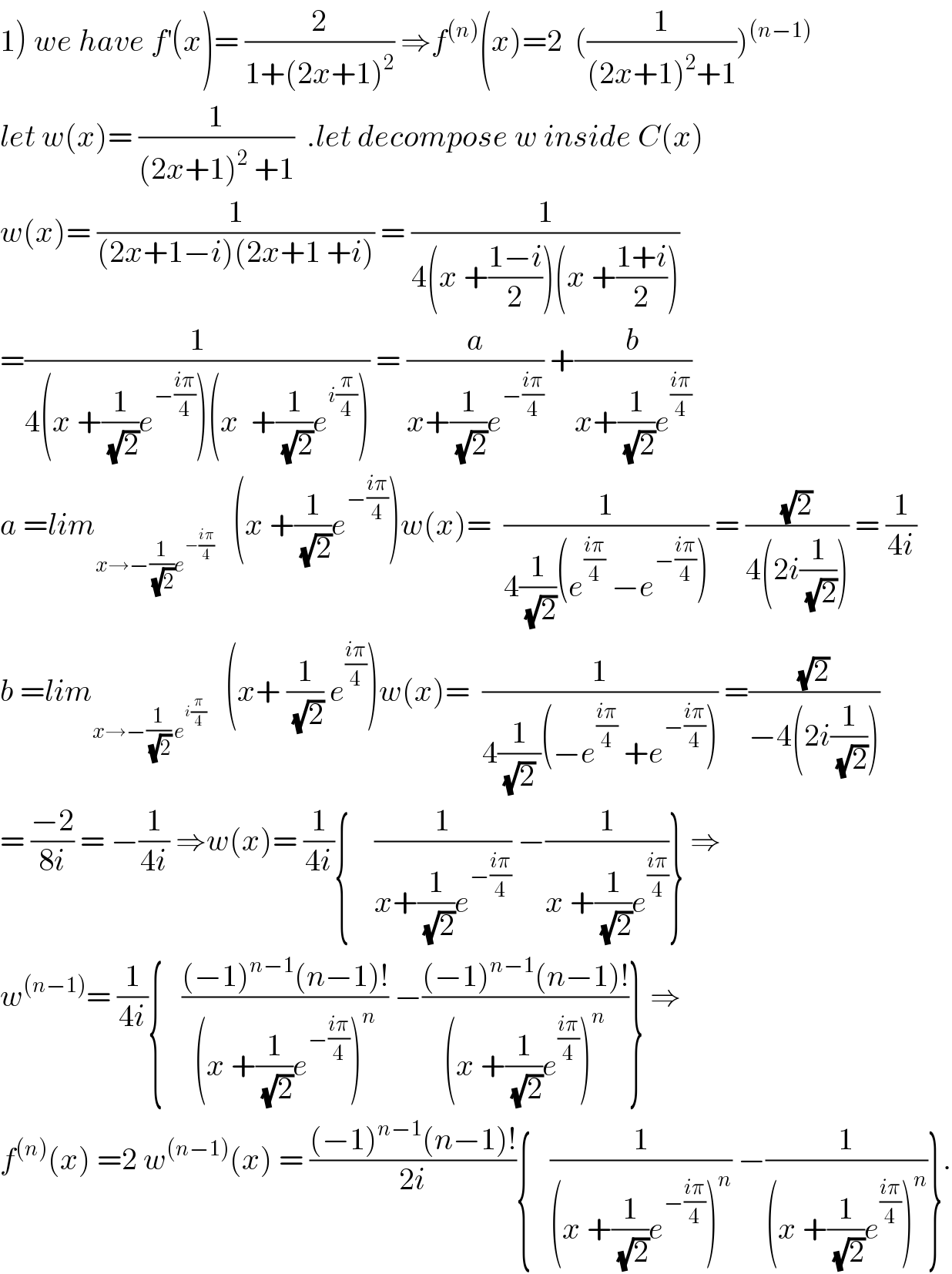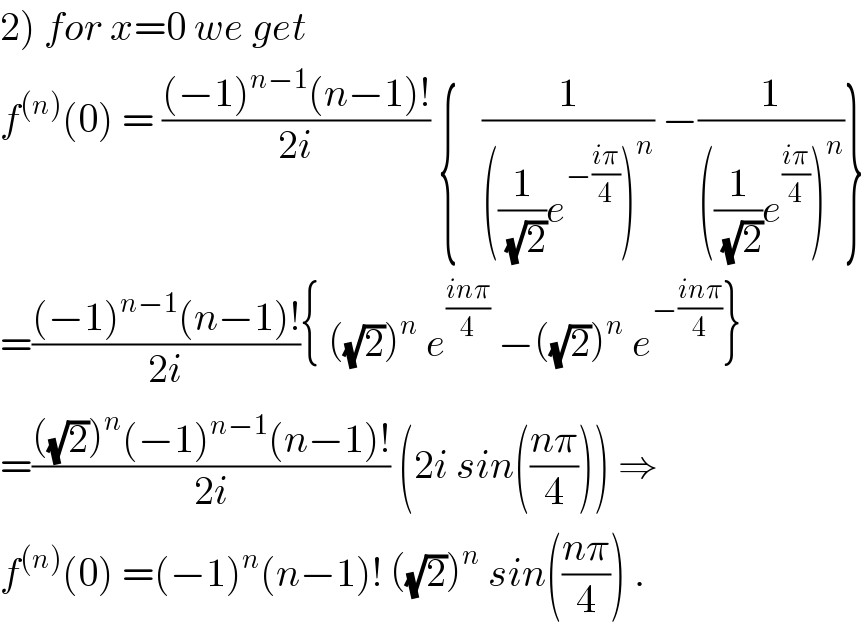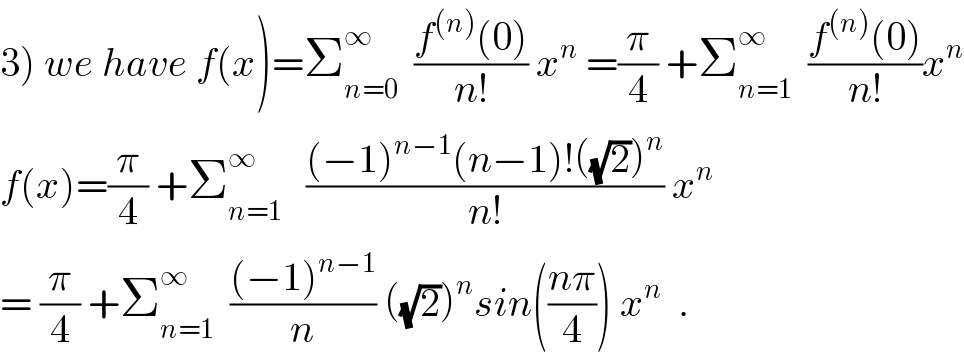
Question and Answers Forum
Previous in Relation and Functions Next in Relation and Functions
Question Number 39891 by math khazana by abdo last updated on 13/Jul/18

Commented by maxmathsup by imad last updated on 13/Jul/18

Commented by maxmathsup by imad last updated on 13/Jul/18

Commented by maxmathsup by imad last updated on 14/Jul/18

Commented by maxmathsup by imad last updated on 14/Jul/18
![4) ∫_0 ^1 f(x)dx = ∫_0 ^1 arctan(2x+1)dx by parts u^′ =1 and v=arctan(2x+1) ∫_0 ^1 arctan(2x+1)dx = [x arctan(2x+1)]_0 ^1 − ∫_0 ^1 x (2/(1+(2x+1)^2 ))dx = arctan(3) − ∫_0 ^1 ((2x)/(4x^2 +4x +2)) dx but ∫_0 ^1 ((2x)/(4x^2 +4x +2))dx = ∫_0 ^1 (x/(2x^2 +2x +1))dx =(1/4) ∫_0 ^1 ((4x +2−2)/(2x^2 +2x +1))dx = (1/4) ∫_0 ^1 ((4x+2)/(2x^2 +2x+1)) dx −(1/2) ∫_0 ^1 (dx/(2(x^2 +x +(1/2)))) =(1/4)[ln∣2x^2 +2x +1∣]_0 ^1 −(1/4) ∫_0 ^1 (dx/(x^2 +2(1/2)x +(1/4)+(1/4))) =(1/4)ln(5) −(1/4) ∫_0 ^1 (dx/((x+(1/2))^2 +(1/4))) ( ch .x+(1/2)=(1/2)t) =(1/4)ln(5) −(1/4) ∫_0 ^1 (1/((1/4)(1+t^2 ))) (dt/2) =((ln(5))/4) −(1/2) (π/4) =((ln(5))/4) −(π/8) ⇒ ∫_0 ^1 f(x)dx = arctan(3) −((ln(5))/4) +(π/8) .](Q39965.png)
Commented by maxmathsup by imad last updated on 14/Jul/18
![5) we have ∫_0 ^1 ((arctan(2x+1))/(4x^2 +4x +2))dx = ∫_0 ^1 ((arctan(2x+1))/((2x+1)^2 +1)) and by parts u^′ = (1/((2x+1)^2 +1)) and v=arctan(2x+1) we get ∫_0 ^1 ((arctan(2x+1))/((2x+1)^2 +1)) dx = [ (1/2)arctan(2x+1).arctan(2x+1)]_0 ^1 −∫_0 ^1 (1/2) arctan(2x+1).(2/((2x+1)^2 +1)) dx =(1/2) (arctan(3))^2 −(π^2 /(32)) −∫_0 ^1 ((arctan(2x+1))/((2x+1)^2 +1)) ⇒ ∫_0 ^1 ((arctan(2x+1))/((2x+1)^2 +1)) dx = (1/4) (arctan(3))^2 −(π^2 /(64)) .](Q39966.png)
